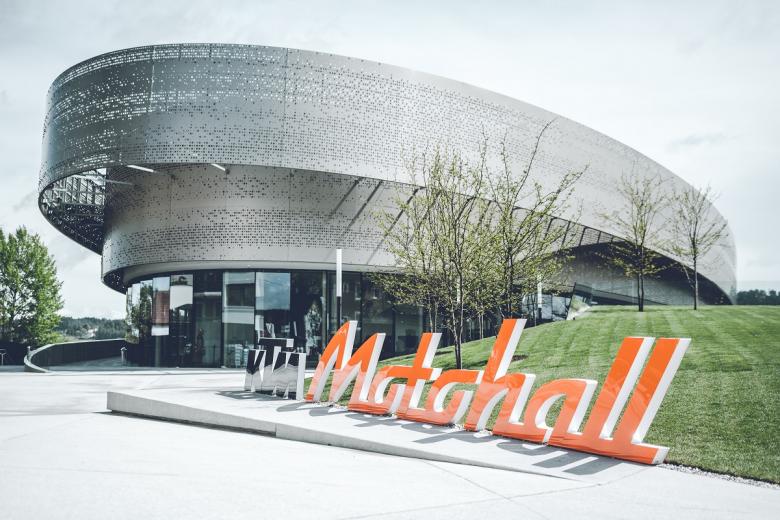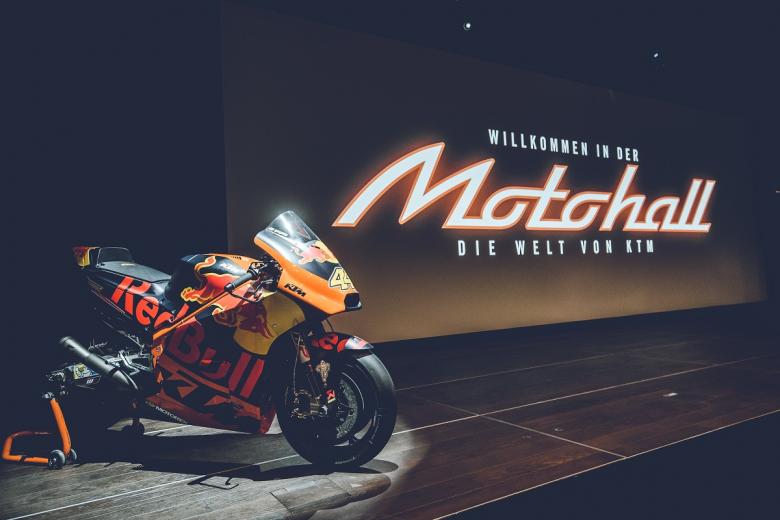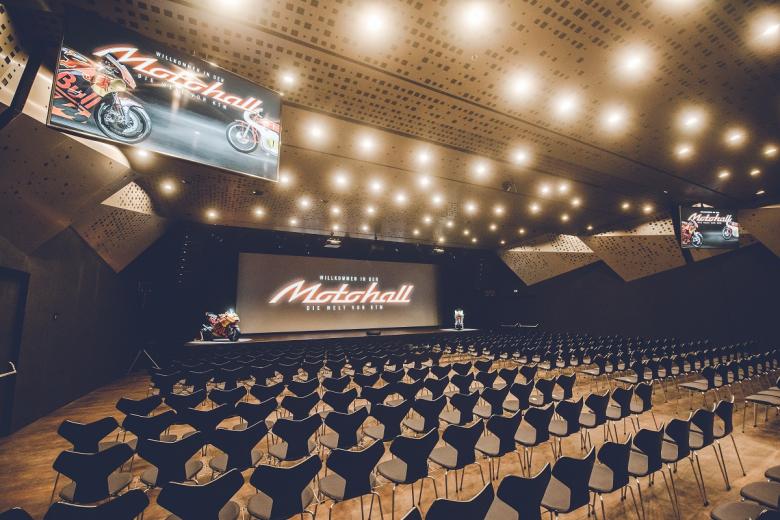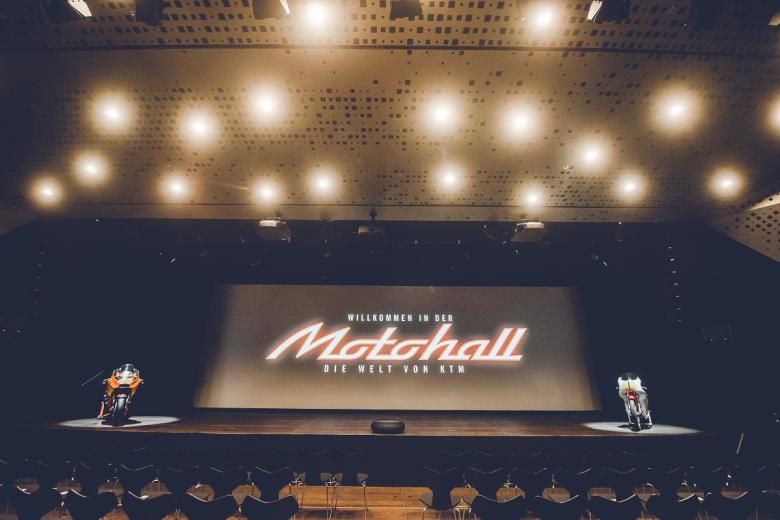KTM Motohall
Back to Projects list- Location
- KTM Platz 1, 5230 Mattighofen, Austria
- Year
- 2019
- Client
- KTM Motohall Mattighofen Österreich
- Team
- Hofbauer Liebmann Wimmesberger Wels Österreich, X architekten ZT GmbH Linz Österreich, Ing. Grillenberger GmbH & Co. KG Perg Österreich
New museum building with event hall and demonstration workshop
The KTM brand is iconic among motorbike enthusiasts – the company of the same name is Europe’s biggest motorcycle manufacturer and is also the global market leader in off-road sports motorcycles. Close to its headquarters in Mattighofen, Austria, KTM has built an interactive exhibition space and visitor experience across three levels and 9600 square metres of floorspace. Opened in spring 2019, the KTM Motohall was designed by X Architekten ZT based in Linz in collaboration with Hofbauer Liebmann Wimmesberger from Wels, another city in Upper Austria.
The aim was to translate the brand’s dynamism and rider experience into the architectural flow. The result is a reinforced concrete basic structure comprising two ellipses, one inside the other, which are tilted against each other by four percent and evoke the curved, oval form of a race track. A laser-stamped pattern resembling off-road tyre tracks is imprinted onto the façade’s stainless steel surface. Load bearing support is provided by nine cores encased in perforated sheeting which remove the strict division into different storeys due to their inclination. With no stairs or lifts, visitors are able to move through the building along circuits and ramps.
Dynamic architectural flow
At the eastern apex of the outer ellipse, the KTM Motohall is four and a half storeys high, with the two and half storeys above ground dedicated to a permanent exhibition about the KTM brand. Featuring interactive displays, virtual tours and more than one hundred original bikes, the exhibition showcases heroes from motorsport as well as the company’s history and the innovation and technology associated with motorcycles. A range of different spaces opens up between the load bearing cores, with the lighting and views creating an exciting interior. The interplay between the materials – exposed concrete, aluminium and terrazzo – complements the harmonious exhibition architecture to deliver an impactful visitor experience. Everything about the concept, from the graphics and lighting to the media and content, draws on a consistent visual language, evoking the purity of the ride. This is the main theme that weaves like an orange thread through the shapes, colours and materials used for the various parts of the exhibition.
The other ramps and decks house a demonstration workshop, an innovation lab, technical facilities, a shop, offices, the ticket area, the Pit Box snack bar and an event hall that can accommodate 400 people.
Feel-good spaces for successful events
Large spaces where lots of people gather for an event require a constant ambient climate and this plays into the event’s success. The aim is for attendees to go away with a positive memory of their overall experience. Fresh, oxygen-rich air – with no discernible draught – is key to creating a feel-good atmosphere. To find an appropriate solution, it is necessary to adopt an integrated approach that takes into account the architecture, its characteristics and technical requirements.
The INDUL AV45 linear diffuser from Kiefer Klimatechnik has a special air discharge geometry that produces fine individual jets of air. These mix into the ambient air but keep the temperature differential between the supply air and the ambient air low – while nevertheless bringing the required proportion of fresh air into the space.
Kiefer Klimatechnik prepared this bespoke ventilation concept early on in the design phase for the KTM Motohall, specifically for the new building’s event hall. The overall air handling concept takes into account all the requirements that pertained to this sophisticated air conditioning technology. By using appropriate products and planning ahead, Kiefer Klimatechnik has not only created superior thermal comfort at the museum, but also seamlessly integrated the technology into the available architecture.



